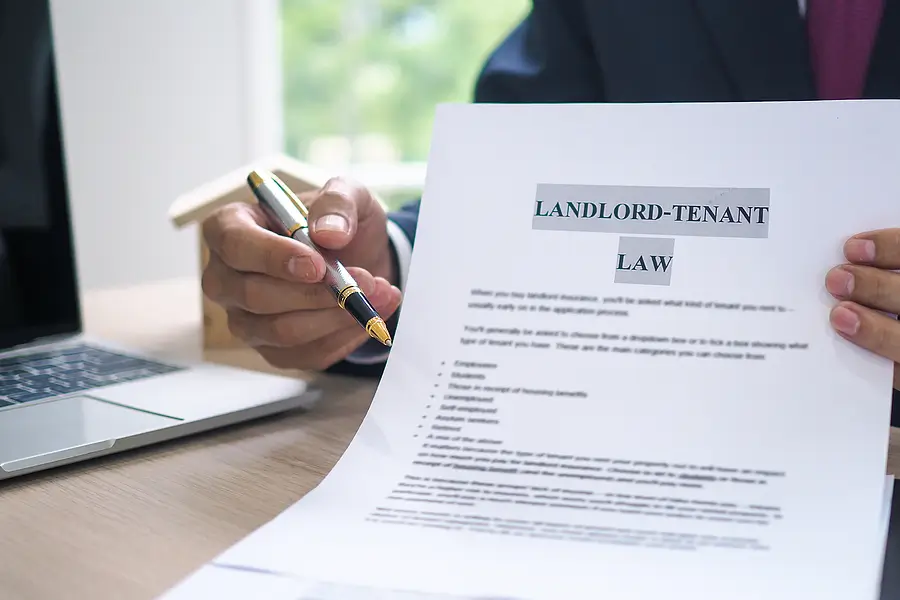Managing rental property in Dayton can be a rewarding experience, but it comes with significant legal responsibilities.
Mastering Ohio’s landlord-tenant and fair housing laws is essential to safeguarding your investment and balancing landlord-tenant relationships effectively.
This guide highlights the critical aspects of legal compliance for owners of multi-family properties.
Summary of Ohio Landlord-Tenant Laws
Ohio’s landlord-tenant laws regulate tenant rights, lease agreements, rental agreements, and security deposits. Ohio is landlord-friendly, with no state-mandated rent control and minimal disclosure requirements.
However, landlords must comply with state laws to avoid disputes, lost rental income, fines, or legal issues that could jeopardize their income.
Knowledge of Chapter 5321 of the Ohio Revised Code equips landlords to manage challenges, like tenants failing to pay rent, with a firm legal footing.
Another is when a landlord fails to follow legal protocols, which can complicate the resolution of challenges like unpaid rent or property damage.
Fair Housing Compliance
Federal Fair Housing Protections
The Federal Fair Housing Act prohibits discrimination based on race, religion, familial status, or national origin. Landlords who fail to comply with these protections open themselves to legal risks.
Ohio’s Additional Protections
Ohio extends these protections to include sexual orientation, gender identity, and military status. The Ohio Civil Rights Commission oversees violations. Ignoring such rules could result in heavy fines and reputational harm, especially when dealing with prospective tenants.
Tenant and Landlord Rights and Responsibilities
Tenant Rights
Tenants have the right to a habitable home with essential utilities and prompt repairs.
Security deposits must be returned within 30 days if no deductions apply.
Unaddressed repairs may lead tenants to withhold or escrow rent, provided they follow legal requirements.
Tenant Responsibilities
Tenants must pay rent on time, maintain the property, and permit reasonable access with proper notice. Violations on their part should be addressed using lawful means, including eviction procedures when necessary.
Landlord Responsibilities
Landlords must ensure their properties remain habitable, handle repairs promptly, and document lease terms.
Also, landlords must provide proper notice—such as a three-day notice to vacate—before escalating legal action.
Landlord Rights
Landlords can collect rent, use deposits to cover damages, and evict tenants who violate agreements. However, they must adhere to proper protocols to avoid costly delays or disputes.
Security Deposits and Evictions
While Ohio law doesn’t mandate security deposits, they are commonly used to cover damages or unpaid rent.
Failing to return these deposits within the set timeframe may result in landlords paying double the deposit plus legal fees.
Eviction cases require strict adherence to proper legal procedures. Serving a valid notice and filing through the county court ensures landlords address lease violations efficiently without risking lost rental income.
Building Better Relationships
Legal compliance ensures smoother landlord-tenant relationships and protects your rental investment. Open communication and adherence to Ohio’s laws are foundational to retaining good tenants and maintaining stable rental income.
Partner with Bridgestream Property Management
Managing multi-family properties doesn’t need to be stressful. Bridgestream Property Management offers expert tenant screening, rent collection, maintenance, and eviction protection services. Their legal expertise and property management strategies ensure your Dayton properties thrive.
Contact Bridgestream Property Management today to see how they can help you protect your investment and maximize its potential.
Other Resources
How Section 8 Decides if Your Rent Is Reasonable: A Guide for Dayton Landlords
Eviction Protection Plans for Your Rental Properties in Dayton, OH


